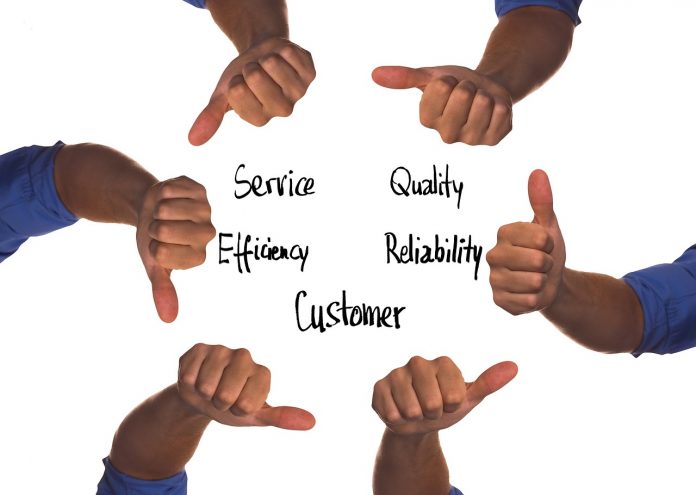Customer relationship management software helps businesses better manage their customer service relationships and various internal processes. The benefits of CRM are best discussed by the numbers, as broken down in an infographic by Cloudswave. Among the stats depicting CRM benefits, research found that 75% of sales managers surveyed use CRM to help drive and increase sales.
Furthermore, when a company engages a customer using CRM, that customer is likely to spend 20 to 40% more when they purchase from that company again. Plainly put, businesses that don’t manage their customer relationships are more likely to fall to the wayside against competitors that do. Customers are likely to trust businesses that know who their customers are, what they need, and what they like. In fact, 89% of customers are more loyal to the companies they trust, and 65% have stopped buying from companies that did something they consider distrustful. In order to effectively keep customers happy and continue on an upward trajectory for new business, proper protocols must be in place to facilitate interactions. If you’re on the fence about what CRM can do for you, here are five benefits you may not have been aware of:
Customer Service Improvement
Customer service can make or break your company. According to the 2015 Aspect Consumer Service Survey, 76% of consumers view a business’s customer service as the true test of how much customers are valued. Customers expect issues to be quickly taken care of, and proper customer relationship management software makes satisfying customers that much easier.
Customer relationship management for the enterprise just isn’t possible without the best technology. With CRM software, each time a customer reaches out to you, that software will be able to automatically pull as much information about that customer as possible, including data on past purchases and correspondence, preferences, and any other relevant information that could prove valuable during assistance. With such rich information readily available to customer service representatives, your team is able to provide accurate solutions at a much quicker pace, and leave the customer feeling much more satisfied.
360-Degree Data & Reporting
CRM ensures that you’ll never be left with miscalculations, and are equipped with the information you need to succeed. Because all information is stored in a single central area, it’s easier to analyze overall data. The CRM also integrates with various tools that help you generate automatic reports and ultimately save you time.
Accompanying dashboards give users a 360-degree overview of everything happening with the business, minute by minute. Users can even personalize their dashboards settings to provide the easiest access to the most relevant information, like customer preferences. These customization options make it simple for business owners to view their business in any light. Ultimately, this data helps businesses glean more information about their customers and their own acquisition process.
Increased Accountability
The is a wrong and right way to hold employees accountable for their actions and progress. Without the right tools to properly manage your customer relationships, there are bound to be missed opportunities. CRM systems organically create an element of accountability, helping each employee across different departments manage their own responsibilities and be held accountable for them. Whenever responsibilities to customers aren’t met, it’s easy to identify the what, why, and who of what went wrong in the customer lifecycle. Furthermore, business owners can then take action to ensure it doesn’t happen again.
Better Communication
One of the big issues businesses without CRMs have is their inability to effectively provide the same level of service from employee to employee – especially when new employees come on the scene. With the customer data provided by CRMs, employees are able to consistently provide high-level service based on previous correspondence and customer talking points. This eliminates the customers uneasiness with having to start from scratch after they’ve already talked to a point of contact who listened and understood their dilemma. Detailed customer information is available to all employees, and this is especially important for businesses managing a high volume of customers.
Task Automation
All businesses can benefit from a little task automation, which makes everyone’s job easier in the long-run. Many of the smaller tasks that are a part of the sales process can be deleted to the CRM, leaving employees to focus more on customer interactions, maintaining customer relationships, and closing deals. Every business has a unique sales process that might include several forms or quote generation, but it’s vital to have a system in place that automates many of the manual tasks and allows you to quickly locate all the information you require to make a transaction final.
Find a Home-Based Business to Start-Up >>> Hundreds of Business Listings.
















































